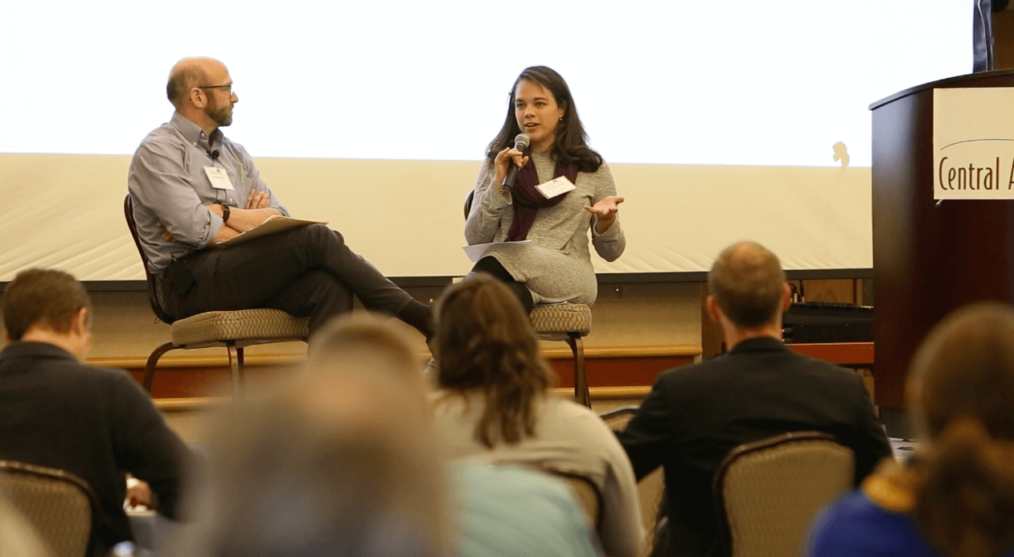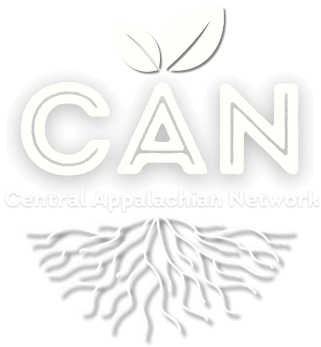
2018 Regional Peer-to-Peer Convening Highlights
In November of 2018, CAN held its first Regional Peer-to-Peer Convening at Tamarack in Beckley, West Virginia. The over 115 attendees included economic development practitioners, community change leaders, funders, and sector experts working on economic diversification and community development in the Central Appalachian region. Discussions were focused on individual sectors and topics, and on cross-cutting issues affecting the equitable transition of the Central Appalachian region. The three concurrent session tracks focused on the three topics of CAN’s working groups: Food and Agriculture Systems, Clean Energy, and Creative Placemaking.
Watch highlights from the Regional Peer-to-Peer Convening in the video below:
Food and Agriculture practitioners and funders joined together for discussions on needs and opportunities within the sector. The Food and Agriculture sessions included:
- Farm Bill Updates from the National Sustainable Agriculture Coalition
- Presentation of healthy food access projects in the region
- Update on the Appalachian Sustainable Development Corridor Project.
Clean Energy funders and practitioners discussed strategies for implementing distributed solar, energy efficiency and utility-scale solar in the region. The Clean Energy sessions included:
- Clean energy policy opportunities by the Clean Energy Leadership Institute and ACEEE
- Presentation of the Appalachia Funders Network Energy Investment Roadmap
- Discussion of messaging best practices and communications strategies by Piper Communications.
This was the first formal meeting of Central Appalachian creative placemaking practitioners and funders. During the Convening, this group was able to create a work plan and set priorities for the upcoming year. The Creative Placemaking sessions included:
- Initial findings of a regional Creative Placemaking Scan
- Artist Thrive Self-Assessment Tool and the Appalachian Creative Economies Network
- Presentation by ArtPlace America.
The keynote of the Regional Convening, given by Justin Maxson, Mary Reynolds Babcock Foundation and Stephanie Tyree, West Virginia Development Hub, focused on Equity and the Appalachian Transition. Justin and Stephanie spoke about inclusion, access, and what equity looks like in Appalachia. Attendees were encouraged to share Equity resources with one another, which were compiled into a list which can be found here.
In another session, panelists representing the Appalachia Funders Network, the Central Appalachian Network, and What’s Next EKY? spoke to the power of Networks and what it takes to build a successful network. Throughout the even, attendees self-organized for open space sessions and small group conversations which covered a variety of topics including: Social Media for Non-Profits, Renewable Woody Biomass, Women’s and Reproductive Rights, Downtown Revitalization, and a more in-depth discussion of how to operationalize Equity practices within our organizations and work. Overall, the sessions were sector-focused, participant-led, and built on the work and progress of all three of the Working Groups.
CAN’s first Regional Peer-to-Peer Convening brought together a wide variety of actors in the Central Appalachian region to build relationships and push forward the work of the economic transition. With intentional spaces for relationship building, peer learning, and work sharing, the Convening brought to life the mission of the Central Appalachian Network – to create the space for collaboration, learning, and growth in the region’s community economic development field. The renewed energy and shared vision that came from the Convening will be key in pushing forward the work of the Central Appalachian Network and its partners in the coming year.
